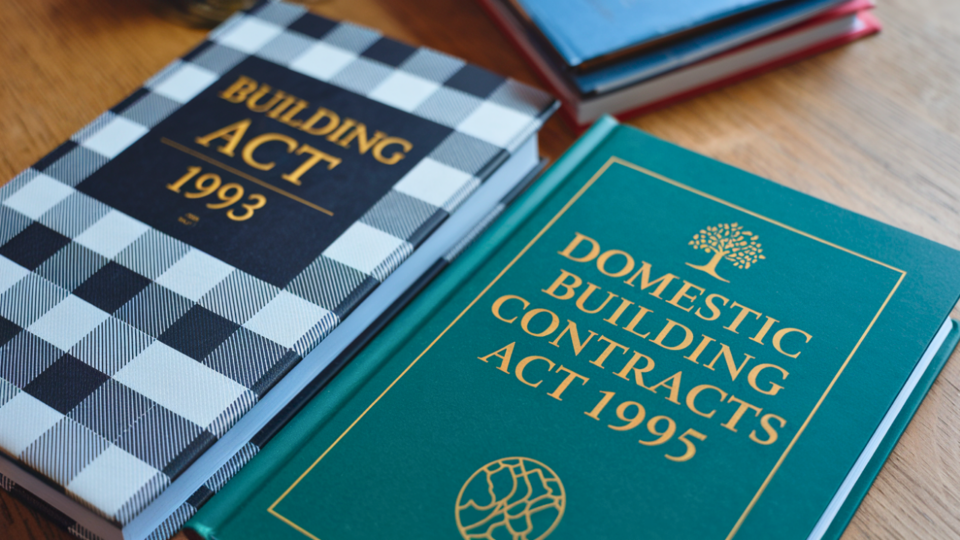
Owner Awarded Damages for Defective Building Work
In a case involving a complex building dispute, a domestic building dispute arose between Leonard Charles Taylor (the homeowner) and Futurespec Pty Ltd (the builder) over substantial defects and delays in completing renovation works. Futurespec Pty Ltd failed to meet contractual obligations, resulting in the termination of the contract. The tribunal was tasked with determining Mr. Taylor’s entitlement to damages for rectification and completion of the building works, as well as addressing claims for additional payments made outside the contract.
Background of the Case
The dispute centred around alterations and additions to a residential property in Northcote. The homeowner, Mr. Taylor, terminated his contract with Futurespec Pty Ltd after several substantial breaches of the building contract. These breaches included serious defects in the construction, significant delays, and the builder’s suspension of works without valid justification.
The Tribunal was tasked with determining whether the contract had been validly terminated, what damages were owed, and if the builder’s counterclaims for variations and other costs could stand.
Valid Termination and Substantial Breach
The Tribunal found that the builder was in substantial breach of the contract. Several major issues contributed to this finding:
Defective Works and Poor Workmanship:
- Failure to build in accordance with the architectural and engineering plans. Notably, the builder improperly constructed the courtyard, which resulted in the reduction of the study size. This alteration compromised the intended design of the compact study and its natural light source.
- The roof frame was constructed with timber rather than the specified structural steel. This deviation led to a noticeable bulkhead over the highlight windows, impacting the low-profile architectural look that was originally intended.
- Structural issues were present, such as incorrect installation of beams and inadequate framing, which raised concerns over the building’s structural integrity.
- Incorrect tiling and improper waterproofing were also identified, creating potential risks for water ingress and further damage.
- The builder unreasonably suspended work on the property and made demands for payments for variations that were neither requested by the homeowner nor compliant with the Domestic Building Contracts Act 1995 (Vic).
Delays:
- In addition to the defects in workmanship, the project experienced significant delays. The builder failed to reach the expected milestones within the agreed timeframes, with the building works dragging on well beyond the contract’s completion date. Specifically, the project reached lock-up stage in early 2016, but no substantial work was done afterward. The building was still incomplete more than a year later, with key areas like the interior fit-out and final touches yet to be addressed. The homeowner’s attempts to push the builder for completion were met with little to no action, causing further frustration and leaving the home uninhabitable for an extended period. The contract required the works to be completed within 310 days. However, by the time Mr. Taylor terminated the contract, the works were still far from completion, with numerous defects remaining unrectified.
Unlawful Suspension:
- The builder also unlawfully suspended the works, halting progress without following the proper procedures outlined in the contract. Under clause 38 of the Domestic Building Contract, suspension is only permitted if the homeowner fails to make progress payments within seven days of their due date or is in breach of the contract, but neither of these conditions were met. Moreover, clause 38 required the builder to give immediate written notice via registered post, allowing the homeowner seven days to rectify any breach before the builder could lawfully suspend work. However, the builder failed to comply with these notice requirements, providing no legitimate reasons for halting work. This left the homeowner in a difficult position, as the building site remained inactive for months, exacerbating the already significant delays.
Costs of Rectification and Completion
Mr. Taylor engaged a new builder to rectify the defective works and complete the project. The Tribunal determined that the costs incurred, amounting to over $590,000, were justified, given the significant defects and unfinished areas left by the original builder. These costs included not only fixing the major structural issues but also ensuring compliance with the original plans and addressing additional defects that became apparent during the rectification process. Applying established legal principles, the Tribunal ruled that Mr. Taylor was entitled to recover these costs as they were necessary to restore the property to the standard initially agreed upon in the contract, ensuring the work was completed to a proper and workmanlike standard.
Final Decision
Ultimately, the Tribunal ruled in favour of the homeowner, finding that the builder had substantially breached the contract. The termination by the homeowner was deemed valid, and the Tribunal awarded damages totalling $539,539.86 to cover the costs of rectification and completion of the works, restitution of cash payments, and liquidated damages for delays. The builder’s counterclaim was largely dismissed, except for a variation claim of $69,925.57, which was allowed because the homeowner had acknowledged the work was outside the contract and had instructed the builder to carry it out. Even so, the set-off did not significantly reduce the overall award to the homeowner. The Tribunal also rejected the builder’s other claims related to building permits and expert reports, deeming them outside the scope of the case. The decision underscored the importance of adherence to contract terms and the protections offered to homeowners under the Domestic Building Contracts Act 1995.
Our Blog
YOUR GO-TO RESOURCE HUB
Whether you’re on the hunt or have already settled in, we’ll arm you with the know-how and confidence to keep your home safe and compliant. With our guidance, you can make informed decisions and steer clear of common pitfalls.





